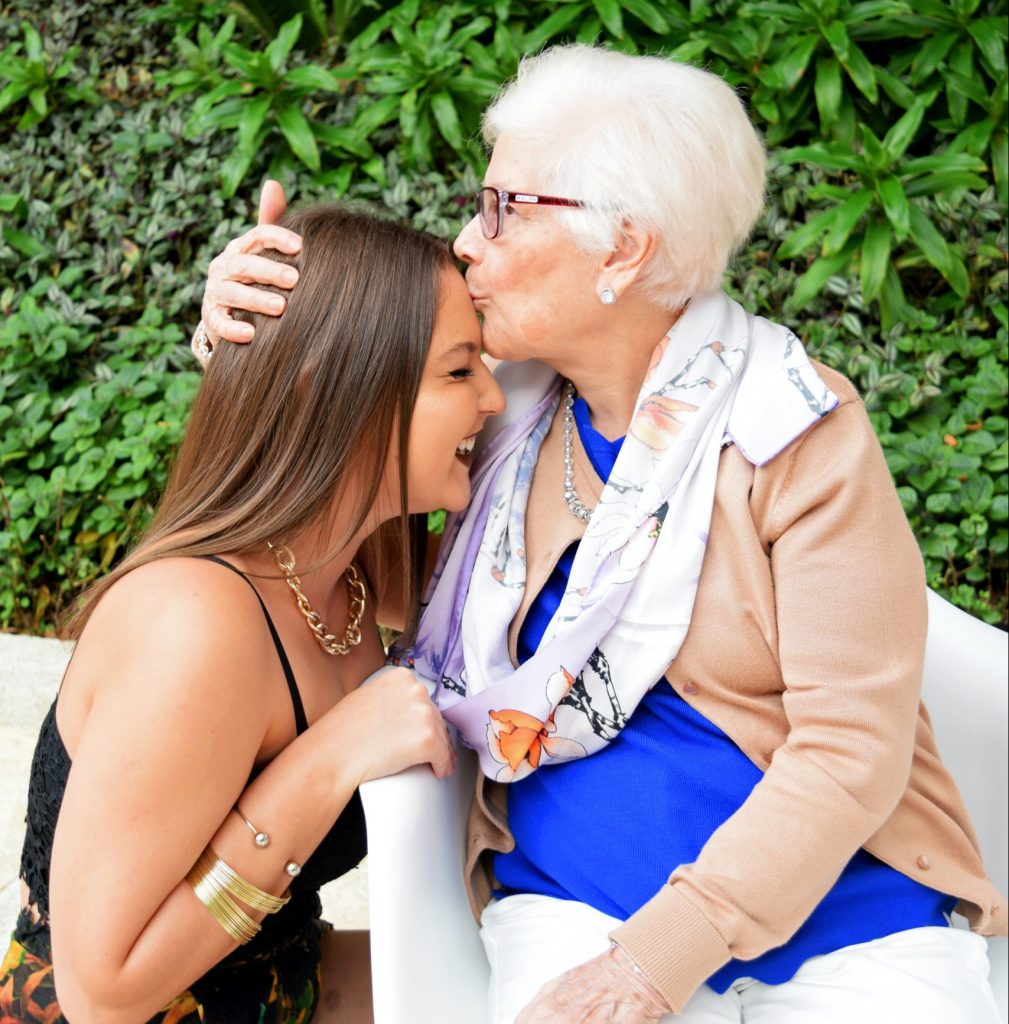Section 9 Representation Agreements (RA9s)
Proactive planning for future support with health care and personal care Download PDF versionSection 9 Representation Agreements (RA9s)
Proactive planning for future support with health care and personal careJump to: Overview • Forms • Examples • FAQs • Related Information
Jump to: Overview • Forms
Examples • FAQs • Related Info
Legally reviewed. Last update made in June 2023.
The information on this page is for you if you meet the traditional definition of capability (of “understanding the nature and effect” of the Section 9 Representation Agreement).
If you are helping an adult who does not meet the traditional definition of capability and there is no existing legal authority in place, please read our information on the Section 7 Representation Agreement.
Is a Section 9 Representation Agreement (RA9) a legal document in BC?
Yes, a Section 9 Representation Agreement is a legal document in British Columbia (see the BC Representation Agreement Act).
The RA9 allows you to give individuals of your choice (called “representatives”), the legal authority to help you with health care and personal care matters when your capability to understand is called into question, and when decisions may need to be made on your behalf.
What can you authorize in an RA9?
The authorities listed in section 9 of the Representation Agreement Act can cover the most comprehensive coverage for health and personal care powers possible in a legal planning document. Section 7 (RA7) of the Representation Agreement Act lists some of the same health and personal care powers but not as many as those available under section 9 because of the different capability requirements.
Section 9 provides general wording to cover most powers or authorities in an RA9, including the authority to refuse life supporting health care.
Some authorities listed in section 9, have to be specifically mentioned if you want them in your RA9. These are not covered by the general wording.
Who can make an RA9?
You must be at least 19 years old (the age of adulthood in BC) in order to make an RA9.
You must also meet the capability requirements listed in section 10 of the Representation Agreement Act, which say you must understand the nature and consequences of the proposed RA9. This means you must understand the kinds of matters that are covered in your RA9 and the effect of authorizing a representative to make decisions about them.
The RA9 capability requirement is based on the traditional definition of capability – ‘understand nature and effect.’ (Some countries use the term ‘appreciate nature and effect/consequences.’)
When can an RA9 be used?
A Representation Agreement is a personal planning document — this means it is intended to be used while you are alive; it has no effect after you die.
The RA9, using forms by Nidus, comes into effect immediately as intended. It is up to you to get the signatures of those you named so the RA9 is ready to go when needed, such in a sudden accident.
Detailed instructions come with the RA9 forms by Nidus and, if followed, you will have a valid Agreement.
Nidus also recommends your Enduring Power of Attorney is in effect when you are capable and if you become incapable.
Make sure your documents are registered (this is your ultimate back-up and reminds you where the original is located).
Never lose the originals—you need it to make copies and it is proof of authority. Never make changes on your original; keep information updated in the Registry.

RA9 (and related) Forms
Nidus provides both RA7 and RA9 forms.
- See RA Forms
- See Related Forms: Confirmation of Substitution Form; Resigning as a Representative or Alternate; Resigning as a Monitor; Revoking RA
Register
Securely register a copy of your RA9 with the Nidus Registry, a BC-based centralized digital repository with 24/7 access. Ensure you are prepared for a health crisis or other emergency.

RA9 Example #1
Geraldine was recently diagnosed with early-stage Alzheimer’s Disease and is concerned about her ability to make decisions and manage her affairs in the future. She learned about Representation Agreements through her support group and decided to make an RA9 through Nidus.
Geraldine named her husband, Hank, and daughter, Sara, as her representatives. Geraldine feels better about her future, knowing that she has put legally enforceable arrangements in place. The people she trusts and who know her best will be able to ensure she is treated with dignity and respect even as her capability may be affected by dementia.
Equally important, Hank also made an RA9. He does not have a specific diagnosis but he knows that it is important for Geraldine’s well-being that his affairs are in order. He names Sara as his representative and his son, Hank Jr., as his alternate.
RA9 Example #2
Michael has an inoperable brain tumour. Michael made an RA9 and named his friend, Gustav, as his representative. Although Michael took part in experimental therapy at an earlier stage of his illness, he has decided he does not want further treatments, however promising. He wants to be sure Gustav can refuse these treatments if he becomes mentally incapable, and even if the doctors believe these could extend or prolong his life. Gustav will also have authority to consent to pain medication and comfort care for Michael. Michael feels reassured that the RA9 will enable him to die with dignity.


RA9 Example #3
Tammy is a single mom with sole custody of her two sons, ages 5 and 7. Tammy has breast cancer. She is about to have surgery and wants to prepare for various situations that may arise. Tammy’s common law spouse, Sandra, will be looking after her sons and Tammy wants to ensure that Sandra has the legal authority to look after their well-being. Tammy learned that an RA9 can include the authority to make arrangements for the care and education of an adult’s minor children. Tammy made an RA9 naming Sandra as her representative and Tammy’s sister as the alternate. The Custom RA9 gives authority to make health and personal care decisions for Tammy and also manage the care and education needs of her sons. Tammy made an Enduring Power of Attorney in case Sandra needs to use Tammy’s money to cover any financial needs of her sons.
When Tammy gets through the surgery and follow-up treatments, she and Sandra plan to get married and Sandra will adopt the boys so she and Tammy will both have parental rights (and responsibilities). Sandra will also make an RA9 with authority to cover the care and education of minor children. (A Will lets parents appoint a guardian for minor children, but a Will only applies after death, not in the event of incapacity.)
RA9 Example #4
Jazmin has an episodic mental illness. There are times when she is well and other times when her judgement and insight are affected by the mental illness. Jazmin made an RA9 when she was well and met the capability requirements to understand. She wants her representatives to be able to consent to treatment when she is mentally ill, even if she refuses treatment at that time. This way, her representatives can give voluntary consent and Jazmin will not be involuntarily committed under the Mental Health Act of BC. If Jazmin is under the Mental Health Act, her representatives are limited in some of their authorities. The Mental Health Act also does not recognize Jazmin as having the same consent rights as other British Columbians – even if she knows what treatments are most effective.

RA9 FAQs
Who should make an RA9 and when?
Although the examples above all describe situations where the adult has a diagnosis or condition, an RA9 is for anyone 19 and older who meets the capability requirements.
The best time to make an RA9 is before a crisis occurs, because a health crisis might affect your capability to make an RA9.
If you make an RA9 in advance, you can always revoke/cancel it and make a new one. Most people will make more than one RA in their lifetime.
What document do I make for financial affairs if the RA9 does not cover it? What other documents do I make?
Most people will make an Enduring Power of Attorney (EPA) to cover their financial and legal affairs. It is the most comprehensive legal planning document for these matters.
By making an RA9, an EPA, and a Will, you will have completed the essential planning documents (assuming you do not have a complex estate).
You must make these documents when you are capable of understanding them. This way, the RA9 and EPA can be used when you are alive and if you lose capacity to understand. A Will is used after your death.
What if I have a living will?
A living will is not a legal document in BC or Canada or even most states in the USA. The living will originated as an informal way for people to express wishes to refuse health care treatments that might prolong their end-of-life.
Some legal professionals refer to the RA9 as BC’s legal living will. While this may serve as a short-hand explanation, it gives the wrong impression. The RA9 covers many more quality-of-life situations than a living will approach.
If you made a living will, you can discuss it with those named in your RA9 and give them a copy to use as guidance. It is a good idea to review it with them at least once a year.
How do I make an RA9?
You do not have to consult a legal professional to make an RA9. Nidus has produced RA9 forms – click here to access them.
Who can be named in an RA9?
The idea of Representation Agreements is to strengthen or create a personal support network around an adult—so the adult has help when ill or injured and when dealing with service systems. An Agreement gives legal status to personal supporters.
Most people name a spouse, family member, or friend in their Agreement. The law does not restrict where they live (it can be another city, province, or country), although it is important to think about practical issues related to the roles. There are many factors to consider about who is named in a Representation Agreement, such as:
- Their relationship with the adult;
- Their skills and abilities;
- Their willingness to work with others named in the adult’s Agreement; and
- Their respect for the adult’s wishes and values.
What are the restrictions on who is named?
Due to amendments on September 1, 2011, the law now has some restrictions on who can be named. The adult can not name an individual as a representative (or an alternate), if:
- The individual is compensated to provide health care or personal care services to the adult (e.g. a paid caregiver, home share provider); or
- The individual is an employee of a facility where the adult lives and the facility provides health care or personal care services to the adult (e.g. assisted living residence, care facility).
These restrictions do not apply if the individual is the adult’s spouse, parent, or child. An RA9 made before September 1, 2011 did not have these restrictions and the law says such Agreements may continue to be in effect and are not affected by the restrictions.
How are authorities different from wishes?
A legal planning document is about giving legal authority to those you name in it. This applies to a Representation Agreement, a Will, and types of powers of attorney. Those you appoint or name need authority or they will not be able to apply your wishes and values.
Although a representative has legal authority for a particular matter, how they use that authority will depend on the circumstance at hand. Your wishes and values also guide the use of their authority.
For example, the general authority in an RA9 includes the authority to ‘move or manage me despite my objections in order to provide health or personal care.’ This does not mean your representative will do this, but, it lets them be involved if a situation arises where your ability to understand is being affected by illness or injury.
Let’s say you are objecting to take a test that the representative believes, based on input from a variety of sources, will be helpful to determine the best health care treatment for your future care and quality-of-life. Your ability to understand is affected by dementia. The RA9 gives your representative authority to authorize the health care provider to move or manage you in order to accomplish the test.
If you cross out or remove this authority, then your representative has no authority to insist on being informed of such matters and has no authority to give or to refuse consent, according to your wishes. Without the authority, they cannot oversee the actions taken and request changes if necessary.
What about wishes? Do I write them down?
Nidus and the top legal experts in this field recommend not including wishes in your RA9. These can backfire.
If you write wishes in your RA9, then third parties – such as hospitals, health authorities, care facilities, the Public Guardian and Trustee – will feel concerned to interpret these and decide if, when, and how your wishes can be followed.
This can be very upsetting for your representative (often a spouse or family member who talked with you about your wishes) if interpretations are different and lead to delay, extra costs, and treatments you did not want.
We know that some legal professionals include wishes when they draft an RA9. In many cases they use ‘canned wishes’ from samples they got in a course or off the Internet. The whole point of wishes is that they are specific and unique to the individual. The law does not require you to write down wishes.
Dialogue between third parties and your representative is valuable. It is best to keep the RA9 document limited to who and what is authorized. The dialogue can focus on the current circumstances and the representative can bring forward your wishes as they apply.
If you feel the need to write down wishes, do it on a separate piece of paper and discuss them with your representative(s) and alternate(s). You will need to have ongoing discussions. It is also important to talk with those you did not name in your RA9 and about your expectations that they will support your representative/alternate and your wishes.
You will find a great resource on the Nidus website called the Values and Beliefs Discussion Guide. Click here for Discussion Tools.
When does an RA9 take effect?
An RA9, using Nidus forms, comes into effect immediately, when all signing is completed, so it is ready-to-go when needed.
Make sure the Agreement is registered (this is your ultimate back-up and reminds you where the original is located). Never lose the original—you need it to make copies and it is proof of authority. Never make changes on your original; keep information updated in the Registry.
Does my representative get paid?
Representatives and alternate representatives are entitled to be reimbursed for reasonable out-of-pocket expenses related to carrying out their duties.
The law says a representative cannot receive a fee (on top of expenses) for making health care decisions on the adult’s behalf.
For a representative/alternate to be paid a fee for other authorities, this must be spelled out in the Agreement and it must be approved by the Supreme Court of BC.
What are the duties of a representative?
The duties of a representative are outlined in section 16 of the Representation Agreement Act, which says that a representative must act honestly, in good faith, and within the law. A representative is there to assist the adult to participate in decisions affecting them. This means a representative needs to be contacted and involved—they need to know what is going on in case they are called in at some point to act on the adult’s behalf.
What roles are available for an RA9?
The Representation Agreement Act describes three roles. A representative is necessary, other roles are optional. Nidus promotes these roles to act like a team, working together with the adult. The roles available are:
a) A representative(s) is the person who has legal authority to assist the adult or to act on the adult’s behalf.
b) An alternate representative(s) is a back-up in case the representative is unable or unwilling to act or continue to act.
c) A monitor is a safeguard and ensures that the Agreement is working for the adult. A monitor can not make decisions for the adult and they are not like an alternate who ‘moves up.’ Only one monitor can be named in an Agreement (the law does not provide for naming more than one or for naming an alternate monitor).
- Naming someone as a monitor is not common for the RA9 but can be helpful in some circumstances. For example, they can act as a buffer and help with communication if there is conflict among family members. The basic RA9 form that Nidus provides does not have a monitor. If you want to name a monitor, you need a Custom RA9. Click here for Nidus RA Forms.
Note: The monitor role is common for an RA7 because of the extra safeguard requirement if an Agreement includes finances.
What if we have to make changes?
Some changes to a Representation Agreement do not make the Agreement invalid. However, changing the people named or the authorities included requires revoking (cancelling) the existing Agreement and making a new one. See Related Information below for a resource on making changes.
Can a representative resign?
Yes, a representative, alternate, or monitor may resign from the Agreement they are named in. Sometimes this may require the adult to make a new Agreement. See Related Information below for resources on resigning.
Can I revoke my Representation Agreement?
Yes, the adult can revoke (cancel) their Agreement. The Representation Agreement Act outlines specific requirements for revoking. Making a new Representation Agreement does not automatically revoke a previous one. See Related Information below for a resource on Revoking.
What can not be authorized in a Representation Agreement?
The RA Act says you can not authorize a representative:
- To do anything that is against the law.
- For example, it is against the law for anyone, other than a physician or nurse practitioner, to provide you with medical assistance in dying (MAiD). You also cannot authorize your representative to request MAiD from a physician or nurse practitioner if you are incapable. You must be capable of consent to request MAiD for yourself.
- To give consent to your sterilization for non-therapeutic purposes.
- To refuse consent to treatment or placement related to your mental disorder if you involuntarily committed under the Mental Health Act.
- This is often referred to as the ‘Mental Health Act Override.’
- A representative retains their authority to matters and decisions not related to your mental disorder.
When does a Representation Agreement end?
A Representation Agreement ends if the adult revokes (cancels) it and when the adult dies. An Agreement also ends if someone is appointed to be the adult’s legal guardian (in BC, called a committee) – unless the court decides otherwise. See Related Information below for a resource on Lifespan of a Representation Agreement.
How does Medical Assistance in Dying (MAiD) fit with the RA9?
The RA9 is a legal document and is separate from the document used to request Medical Assistance in Dying (MAiD). An RA9 covers many more situations than MAiD; the RA9 is an essential planning document for all BC adults.
Making an RA9 does not prevent you from requesting MAiD; it gives you more options in case you are found not eligible for MAiD or you become incapable before you can request MAiD or you are incapable before it can be administered.
Both an RA9 and MAiD enable dying with dignity.
MAiD can be characterized as ‘dying with medical intervention.’
An RA9 can be characterized as ‘dying without medical intervention.’ (i.e. A representative can refuse treatments.)
MAiD is when a physician or nurse practitioner prescribes and may also administer a medication(s) to cause an individual to die. The individual must be 18 years or older and mentally capable to understand the nature and effect of MAiD at the time they request it and when it is administered. The individual must be found eligible for MAiD by two qualified practitioners. See the Nidus fact sheet on MAiD.
As discussed in the earlier example for Michael, an RA9 gives a representative authority to refuse life supporting health care as well as authority to consent to pain relief and comfort care.
BC’s health care consent legislation also allows an adult, like Michael, who is capable of informed consent to refuse health care – medical interventions – on any grounds, even if he will die. The RA9 is a way to give a representative this authority if you become incapable. A representative applies your wishes and values according to the circumstance.
All provinces in Canada and many countries have legislation similar to an RA9 that enables someone to authorize another individual to refuse health care on their behalf.
MAiD received much more publicity than the provincial laws about refusing life-prolonging treatments. This may be due in part to the active role that medical professionals play in determining eligibility and prescribing interventions. Many of them are helping to raise awareness about MAiD.
Groups who lobbied for MAiD continue to lobby for more changes such as allowing Advance Directives/advance consents. BC’s example of the limited usefulness and lack of safeguards for stand-alone Advance Directives may be important to the debate.
How do Advance Directives fit with RA9s?
BC’s legislation for Advance Directives, which came into effect on September 1, 2011, says adults can give stand-alone instructions about health care treatments they do or do not want if they come mentally incapable. A health care provider can apply the stand-alone instruction as a consent on behalf of an adult who is incapable (substitute consent) and if the instruction applies to the specific circumstance.
On the face of it, an Advance Directive sounds easy and useful. However, even medical professionals who try to make an Advance Directive report that it is impossible to list all expected circumstances or provide for the unexpected. A stand-alone Advance Directive is also not practical. A health care provider, who likely does not know you, will act alone to interpret your instruction and decide if it applies or not.
Some limitations:
- An Advance Directive cannot cover personal care matters, only health care. An RA9 covers both. Personal care matters may include living arrangements, arranging home support and other services, diet, participation in activities, personal safety, and contact with others.
- Instructions alone do not work if someone’s capability fluctuates (as with dementia). A health care provider would want to be sure an adult is assessed as mentally incapable before acting on a stand-alone instruction.
- It is nearly impossible to put an instruction in writing that is clear enough to substitute as a consent in the future. Medical opinions, treatments, and circumstances can changes.
- For example, suppose an adult writes an instruction to refuse a feeding tube. Let’s say they damage their esophagus from a hiking accident and are determined incapable of consent. The doctor wants to put the adult in an induced coma and believes a feeding tube is necessary and life saving as a temporary measure while the esophagus heals. There is a stand-alone Advance Directive refusing a feeding tube. Did the refusal mean to apply to the circumstance at hand?
- In another example, an adult writes an instruction to refuse any treatments by Intravenous (IV). Suppose the adult develops severe diarrhea at a palliative (comfort care) stage of their illness and the most effective treatment is medication delivered by IV. The adult is incapable of consent. The adult is incapable of consent. To comply with the Advance Directive, the health care provider cannot use IV. In this case, the patient’s sheets must be changed at least every three hours. This does not seem a dignified situation for the patient, visitors, or staff.
The key advantage of an RA9 is that, if you are not capable of informed consent, your representative can have a dialogue with the medical team and with you, to get your input, however you can communicate your current wishes. This is critical in cases of fluctuating capability. A representative has authority to give, refuse, or withdraw consent according to the situation and your wishes and values. The representative takes responsibility and interprets your wishes and instructions based on their knowledge of you as well as discussions and experiences with you. This is a safeguard for you and a relief to health care providers who likely never met you before or who only know you from a medical context.
RELATED INFORMATION
Types of Representation Agreements
Representation Agreements (Overview)
Section 7 Representation Agreement
Roles
Role of Representative (PDF)
Resigning as Representative or Alternate (PDF)
More Detail
Lifespan of a Representation Agreement (PDF)
Amendments and RAs made before Sept 1, 2011 (PDF)
Other Documents
Enduring Power of Attorney
Will
Use & Tips
Tips for using RA with Health Care Institutions (PDF)
Access to Information and RAs (PDF)
Making Changes to RA (PDF)
Confirmation of Substitution Form (PDF)
Revoking a Representation Agreement (PDF)
Documents Made Outside BC
More Languages
個人規劃和代表協議書單張 Chinese translation (PDF)
Está Usted Preparado – Spanish translation (PDF)
Legislation
Representation Agreement Act (BC)
Representation Agreement Regulation (BC)
SIGN UP FOR NEWSLETTER
Stay updated on the latest developments, resources, and more.
© 2025 Nidus Personal Planning Resource Centre. All rights reserved.

